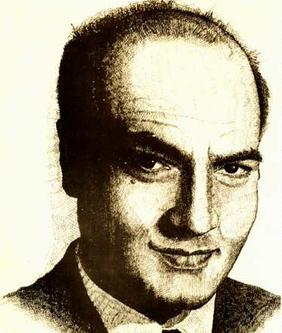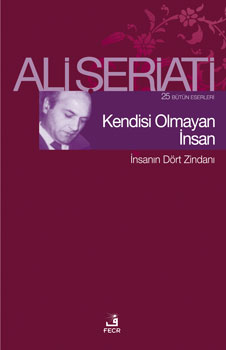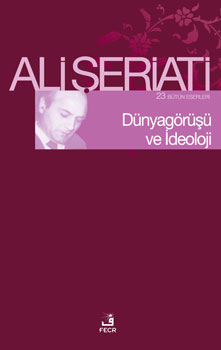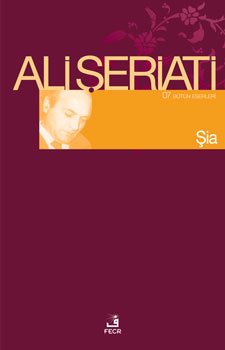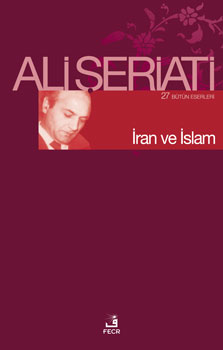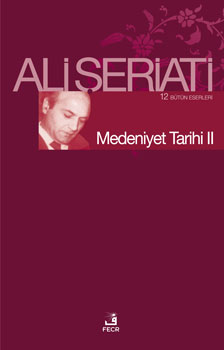FICTION AND NONFICTION Amir Taheri
Edward Said and Ali Shariati asked the wrong questions.
NATIONAL REVIEW ONLINE
October 3, 2003
Edward Said, the American scholar (born in Jerusalem) who died last week, is often regarded as the man who invented the "blame-it-on-the-West" theory. His "Orientalism," a polemical pamphlet masquerading as historical analysis, presented the study of the Muslim world by European scholars as a "colonialist plot."
The premise of the polemic is simple: The West is an "imperialist" monster out to dominate the world, devour its resources, impoverish other nations, and plunge mankind into perpetual war.
The conclusion is equally simple: The only relationship possible between "the West" and "the rest" is one of perpetual conflict.
Almost two decades before Said, the Iranian polemicist Ali Shariati presented a similar reading of history in several books, some of which were serialized in the Tehran daily newspaper Kayhan in the mid-1970s.
Both men made a number of assumptions.
First, they saw the West as a monolithic machine motivated by Machiavellian considerations of power and profit.
Shariati had spent years in France while Said spent almost the whole of his life in the United States, where his father had become a citizen. Both writers failed to see, or chose to ignore, the diversity of political opinion, social mores, cultural attitudes, and the more classical class conflicts that existed in all pluralist and democratic Western societies.
Secondly, they saw the East-West relationship in purely moral terms and ignored the "cold" political, economic, and military aspects of international relations.
They never asked why it was so easy for Bonaparte to conquer Egypt with a handful of men. Nor did they wonder how the British were able to control the Indian subcontinent with a few thousands European officers and bureaucrats. Nor, again, did they ask why was it that Muslims, who had supposedly discovered the wisdom of the ancient Greeks before the Europeans, failed to develop the rationalism without which there can be no modern industry and thus no modern military power.
Thirdly, both men assumed that whatever came from the West was evil. They ignored the positive influence of Western ideas that, exported to "the rest," enabled non-Western nations to attempt long-overdue reforms. Had Said and Shariati looked around them they would have seen that virtually the whole of the cultural and literary revival that Muslim nations experienced from the middle of the 19th century onwards was a result of Westernization.
Finally, both men wanted "the rest," which in their case meant Muslims, to resist Westernization at all cost. To Shariati, becoming Westernized was like "catching syphilis." Said saw Westernized Muslims as "service slaves" fed on crumbs from the Western high table.
"We have to re-become ourselves," Shariati insisted. But, like Said, he failed to say what exactly that "ourselves" was. Did it mean the moribund societies in which despots ruled over an ignorant and terrified peasantry with the help of corrupt elites? Did it mean a life blighted by poverty, disease, and insecurity? Did it mean a culture reduced to the level of silly neo-classical poetry and ornament-stricken prose?
Said and Shariati were intelligent enough not to re-become "themselves," whatever that meant. They did not obtain their education at a madrassah in Qom or a maktab in Quetta. One passed through the crucible of the Sorbonne in Paris while the other studied at several American universities.
As far as style, reasoning, methods of analysis, and cultural terms of reference are concerned, both were entirely Western writers, although Shariati wrote most of his works in Persian. Shariati was influenced by Fanon and Gurovitch while Said was inspired by Anderson and Milliband. Shariati loved Balzac and wrote his books while listening to Bizet. Said was a fan of Conrad and listened to Bach. The only concession they gave to the cause of "re-becoming themselves" was that both stopped wearing neckties in their final years and, instead, grew beards.
Shariati and Said adopted the Western culture of nationalism as the basis of their Manichean view of the world. Living in Europe and America, they could not identify with any particular nation, however. For them, "us" meant the Muslim world of which neither had a serious, firsthand experience. To them, Islam was not a religion, but an ideology and a cultural identity.
Two issues preoccupied Shariati and Said above all else. Shariati became obsessed with the Algerian war of independence. Said's preoccupation was with Palestine. Each saw the issue of his preoccupation in terms of "just versus unjust" and "Islam versus the West." This led them into a moralistic maze that precludes a proper analysis of issues that are neither religious nor cultural, but fundamentally political.
In Algeria it was not "the Crusading West" fighting Islam. On one side there was a colonial state experiencing a crisis of identity and unable to tame its conservative instincts. On the other there were the Algerian peoples that, for the first time in history, were beginning to define themselves — ironically enough, in expressly Western terms — as a nation. In other words, it was after they had become Westernized that the Algerians rose against the French.
The Palestine issue is not an "us versus them" conflict either. It is about land, borders, sovereignty, and, ultimately, political power. It is, if you like, a secular issue, not a theological one. The focus of the hurt nationalism of some Arabs, it is not a theatre of war between Islam and the "Judeo-Christian" West.
Said and Shariati differed on one important point. Said blamed almost everything on Western imperialism. His historic question was, "What have others done to us?"
Shariati, however, divided the blame between the West and the Muslim ruling and theological elites. Having asked the same question as Said, he proceeded to pose another: What have our rulers and religious leaders done to us?
But even Shariati, although he goes further than Said, fails to contemplate the possibility of subjecting the Islamic tradition itself to serious analysis and criticism.
It is not enough to say we are in this mess either because the "imperialists" have dominated Muslims or because our rulers and theologians have been corrupt and ignorant. This kind of blame game may make for exciting polemics. But it leaves the basic question unattended: Is there not some fundamental flaw in our culture that makes us vulnerable to "imperialist aggression" and domination by corrupt rulers and ignorant theologians?
Blaming others for the mess we have been in for centuries may make us feel good, even heroic. But at the same time, it divests us of our humanity. It turns us into objects of history, mere pawns manipulated by powers beyond our comprehension. In that sense, the reading of history by Shariati and Said could be described as metaphysical. Their work, therefore, should be read as literature rather than politics.
— Amir Taheri, and NRO contributor, is an Iranian author of ten books on the Middle East and Islam.
Kaynak: http://www.benadorassociates.com/article/600
